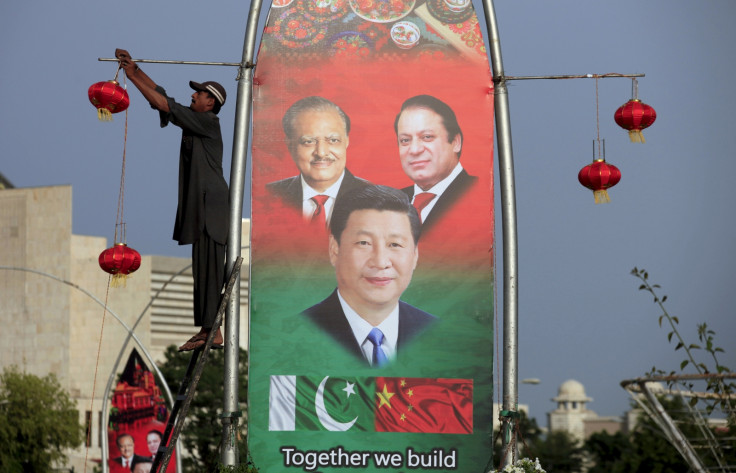China to invest $46bn in building economic corridor to Pakistan

China is set to announce a $46bn (£30.8bn, €42.6bn) investment to build a network of roads, railway and pipelines between the world's second largest economy and its neighbour Pakistan.
China's President Xi Jinping, who has arrived in Pakistan on his first visit to the country, is expected to announce the scheme, named China-Pakistan Economic Corridor (CPEC). The 3,000-kilometre project will connect Gwadar in Pakistan to China's western Xinjiang region.
The investment amount is just a little less than three times the entire foreign direct investment Pakistan has received since 2008.
As per the CPEC plan, China's government and banks will lend to Chinese companies, who will then invest the money in commercial projects.
The move comes as China plans to boost its economic influence in Central and South Asia, competing against economic powerhouses such as the US and Japan. The investment figure is significantly higher than US spending in Pakistan. The US has given $31bn to Pakistan since 2002, according to official data.
For Pakistan, the Chinese investment would prove significant, as it looks to shore up its struggling economy and address its chronic power shortages. China earlier became Pakistan's largest trading partner, with two-way trade growing 12.57% to $16bn in 2014.
The project involves coal, wind, solar and hydro energy projects, providing 10,400 megawatts of energy to Pakistan's national grid.
Xi said that his first trip to Pakistan is like visiting the home of his "own brother".
"I look forward to working with Pakistani leaders during the visit to explore the general framework for bilateral cooperation, make substantial progress in the China-Pakistan Economic Corridor and practical cooperation in other fields and push for the furtherance of bilateral ties at a higher level," Xi earlier said in an article for the state-run Xinhua news agency.
© Copyright IBTimes 2024. All rights reserved.









